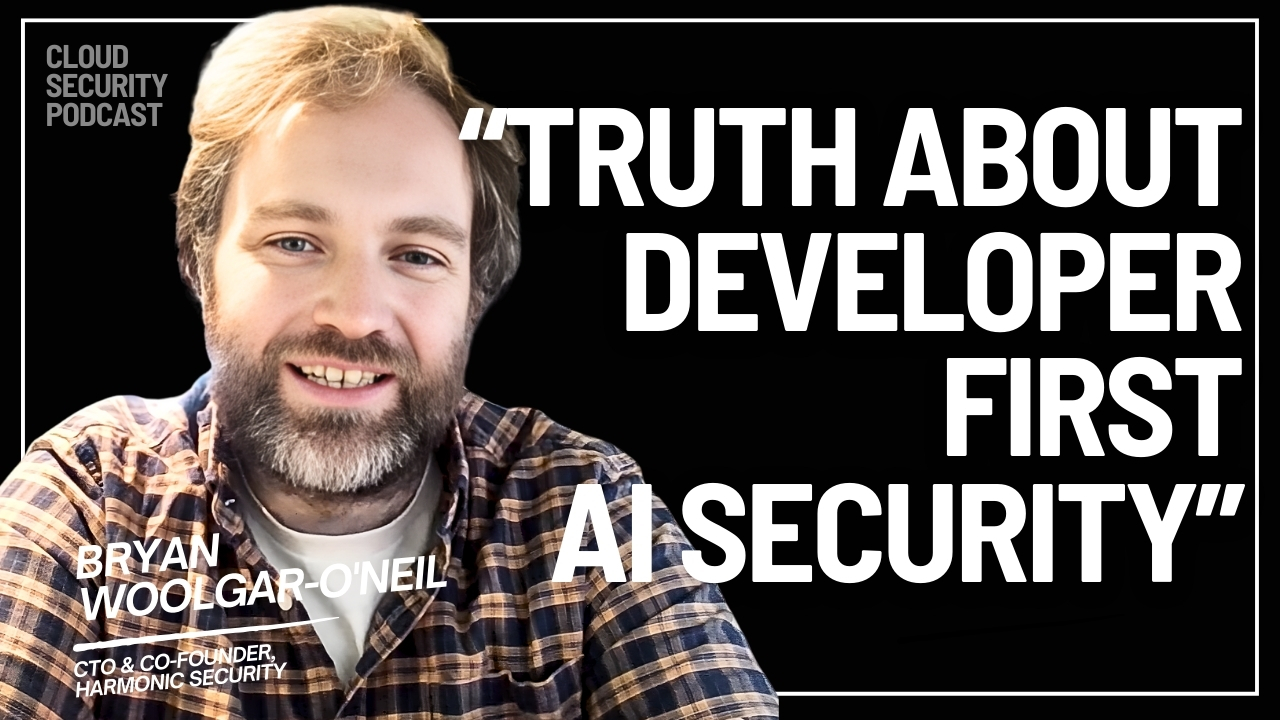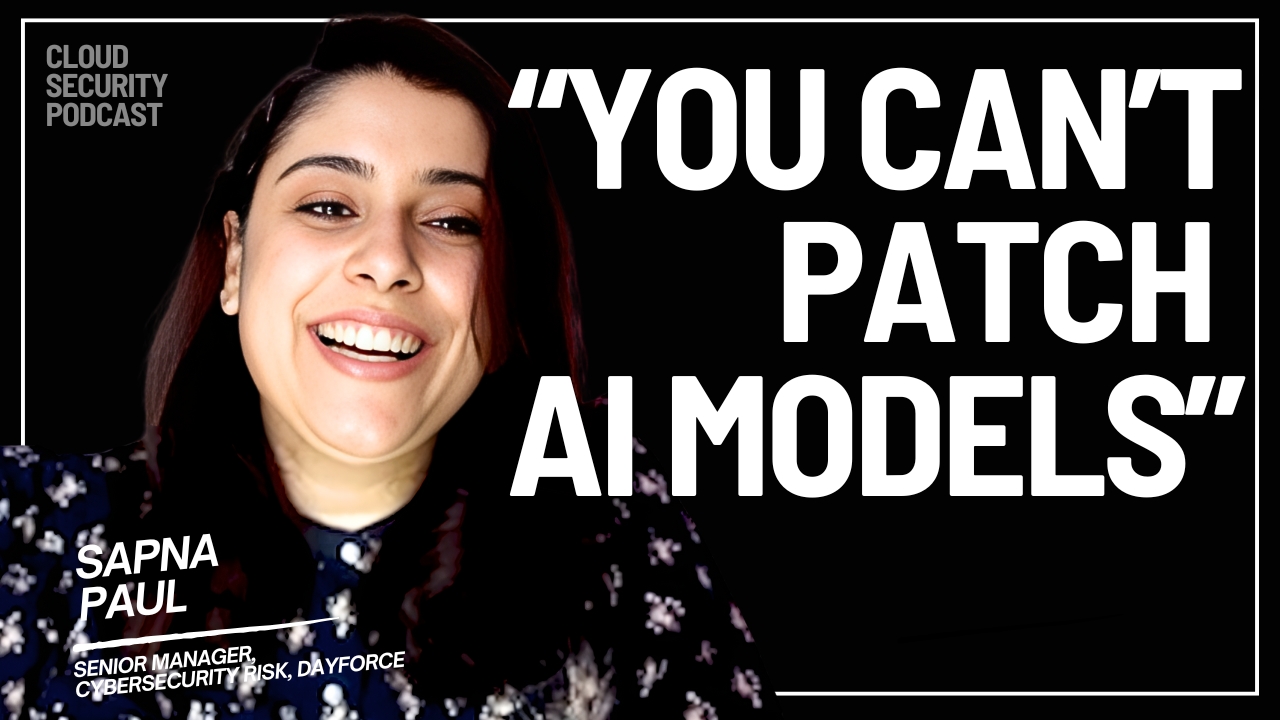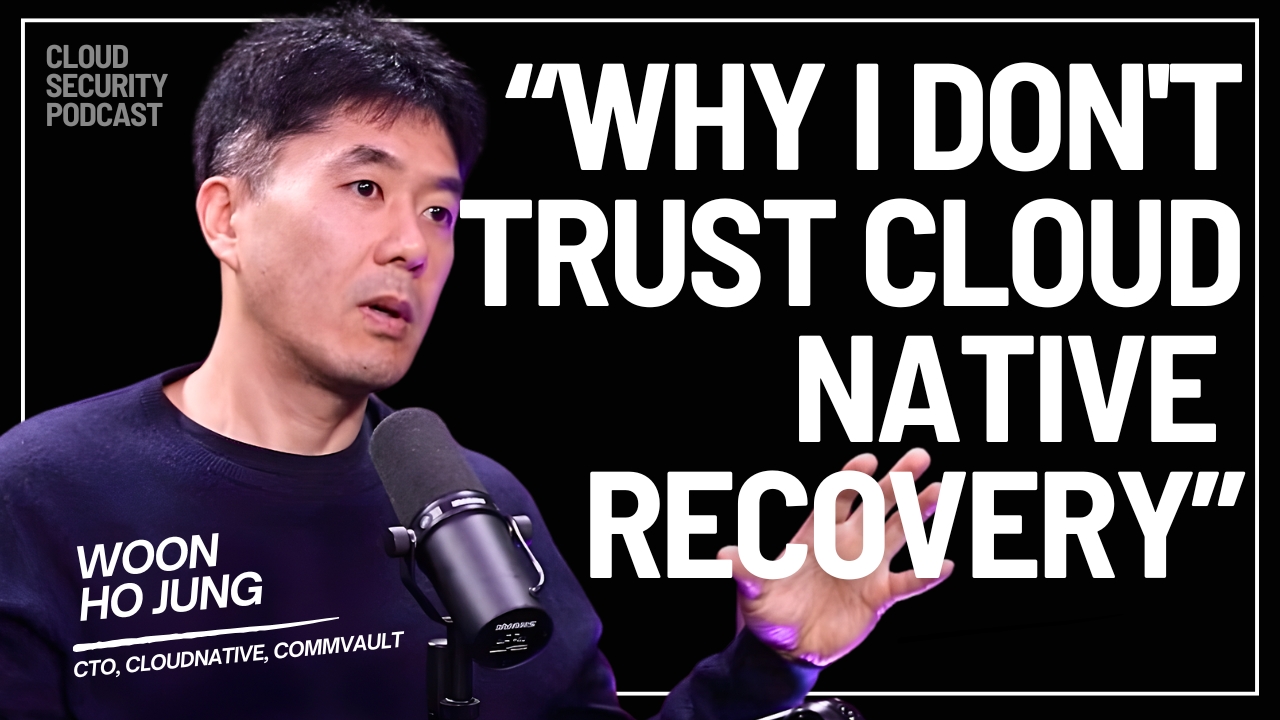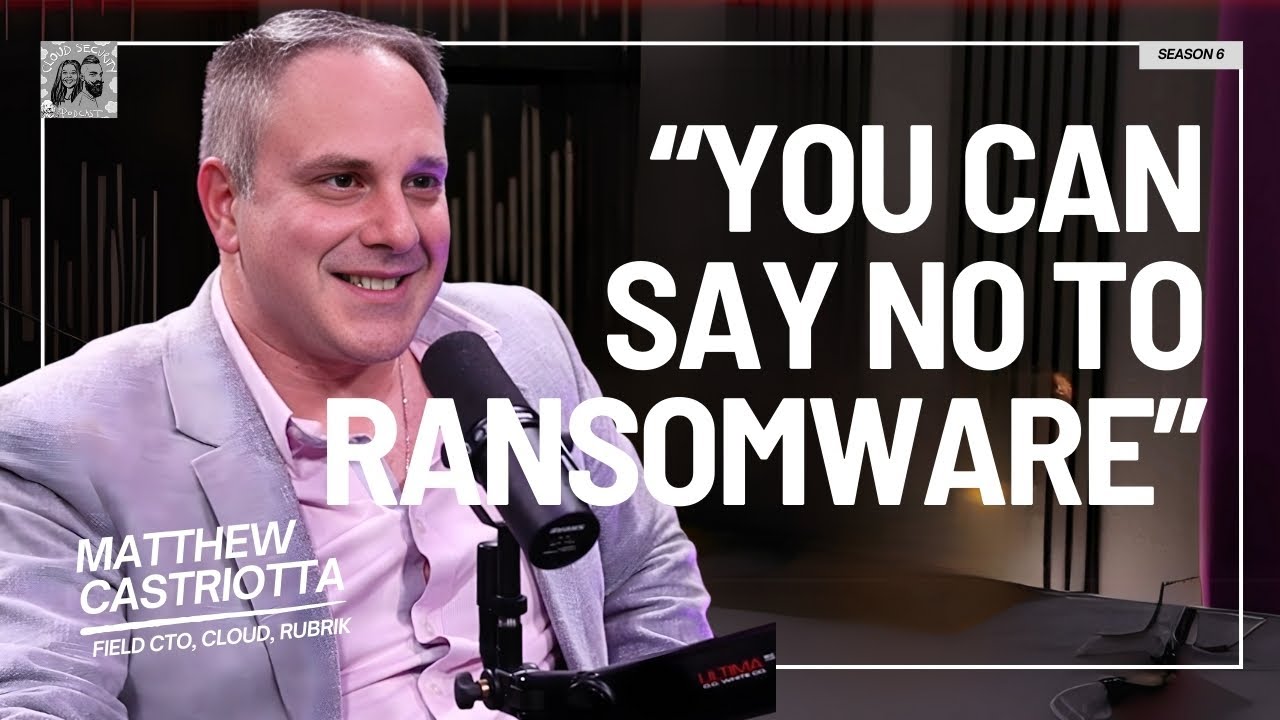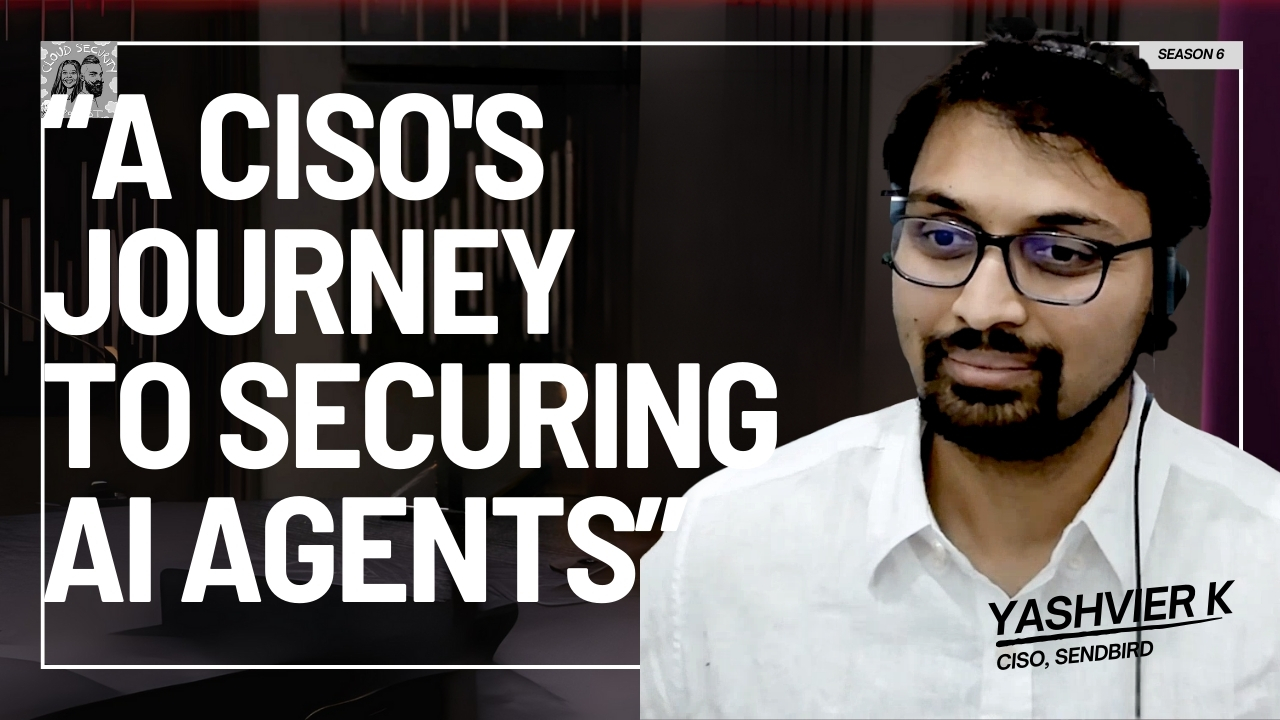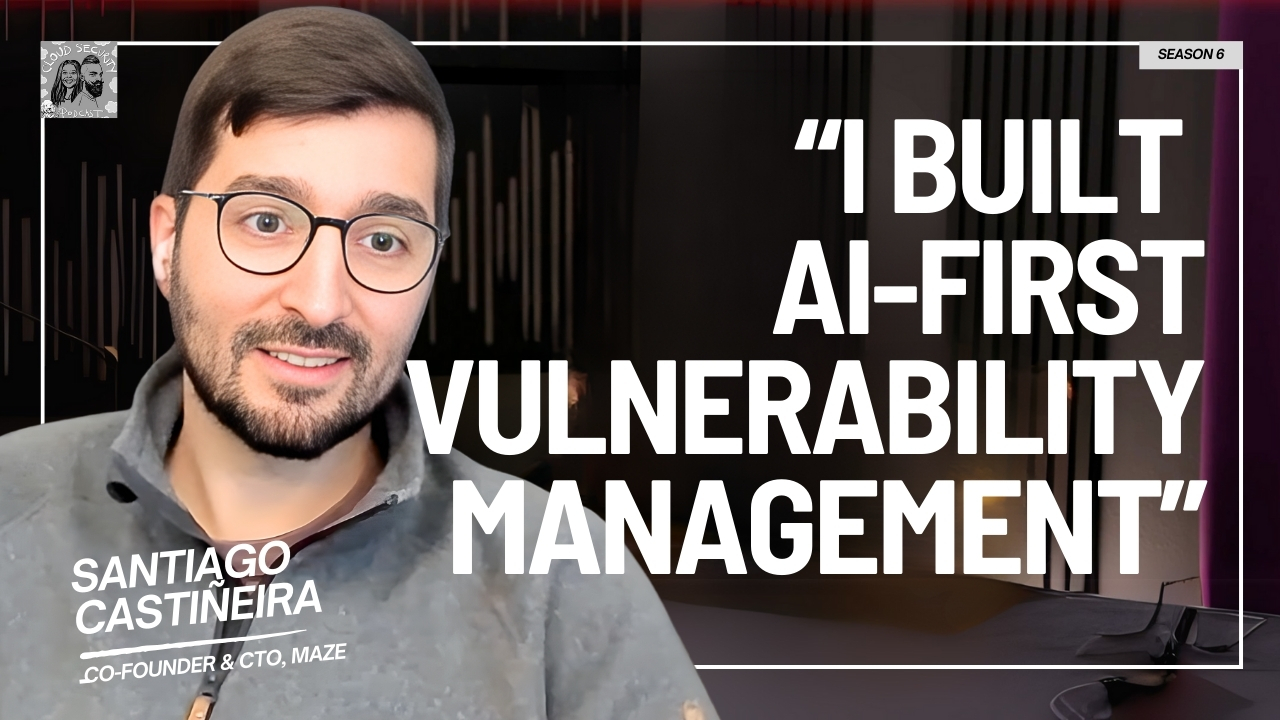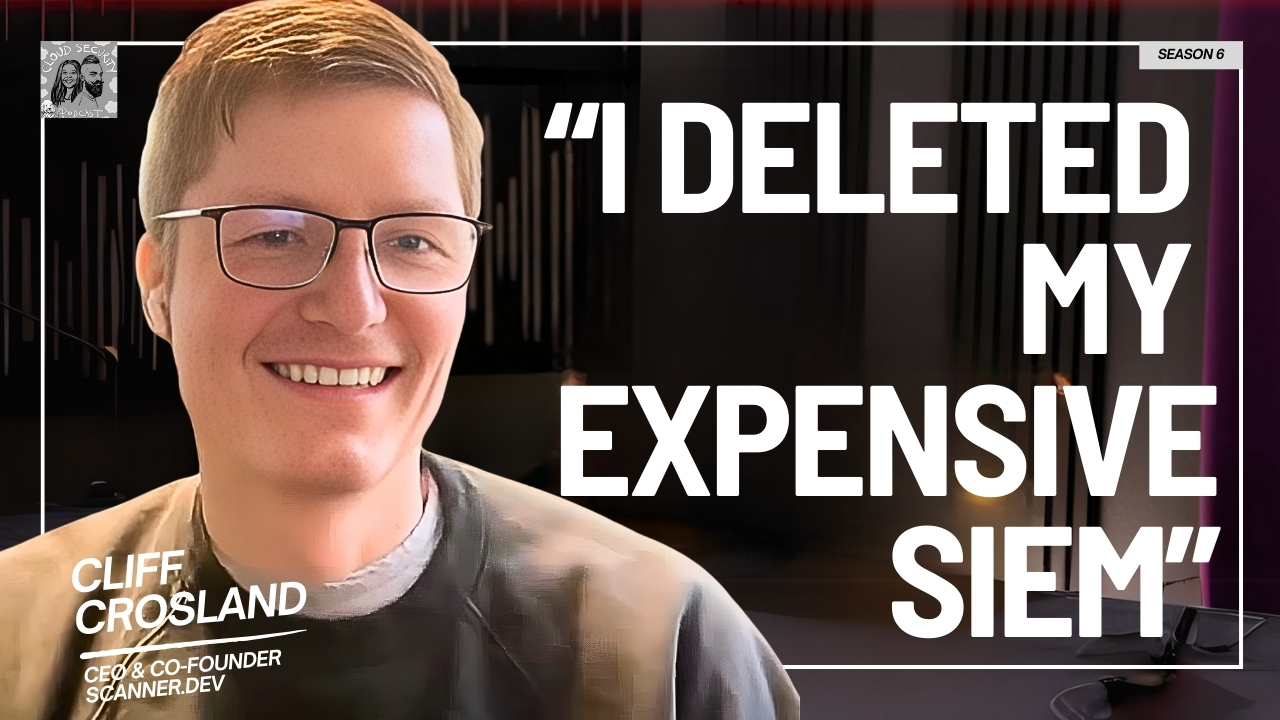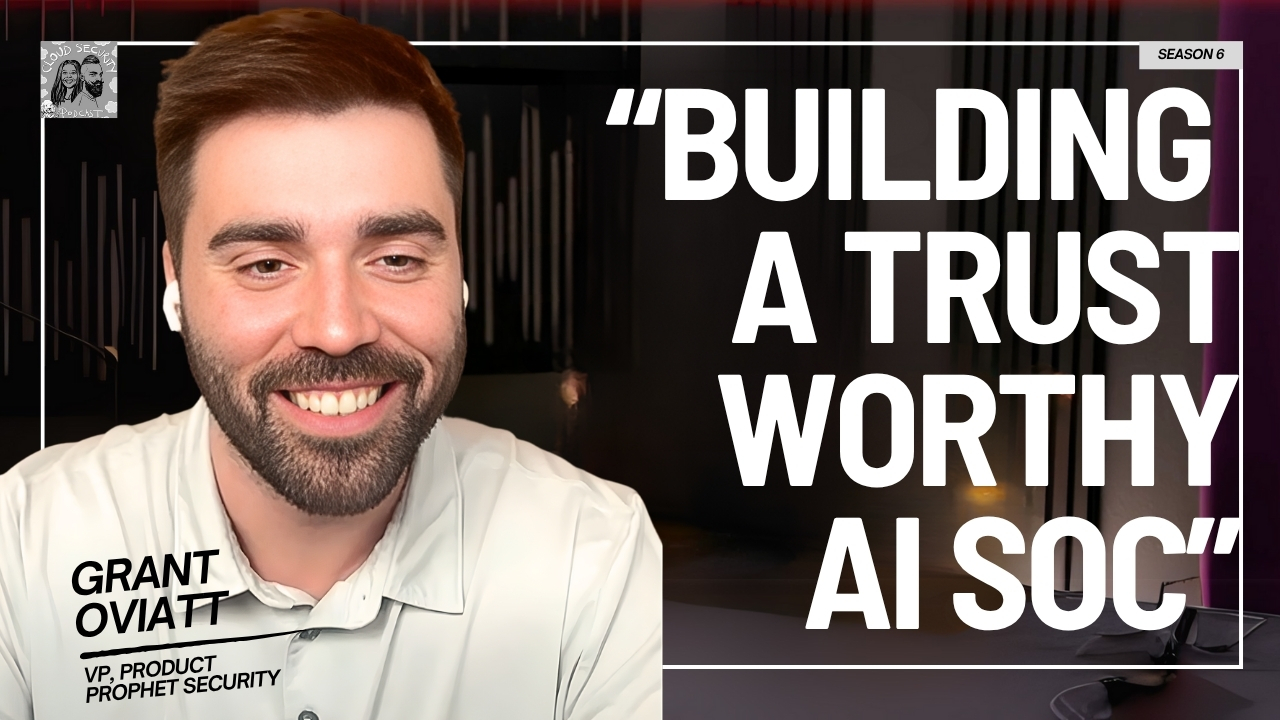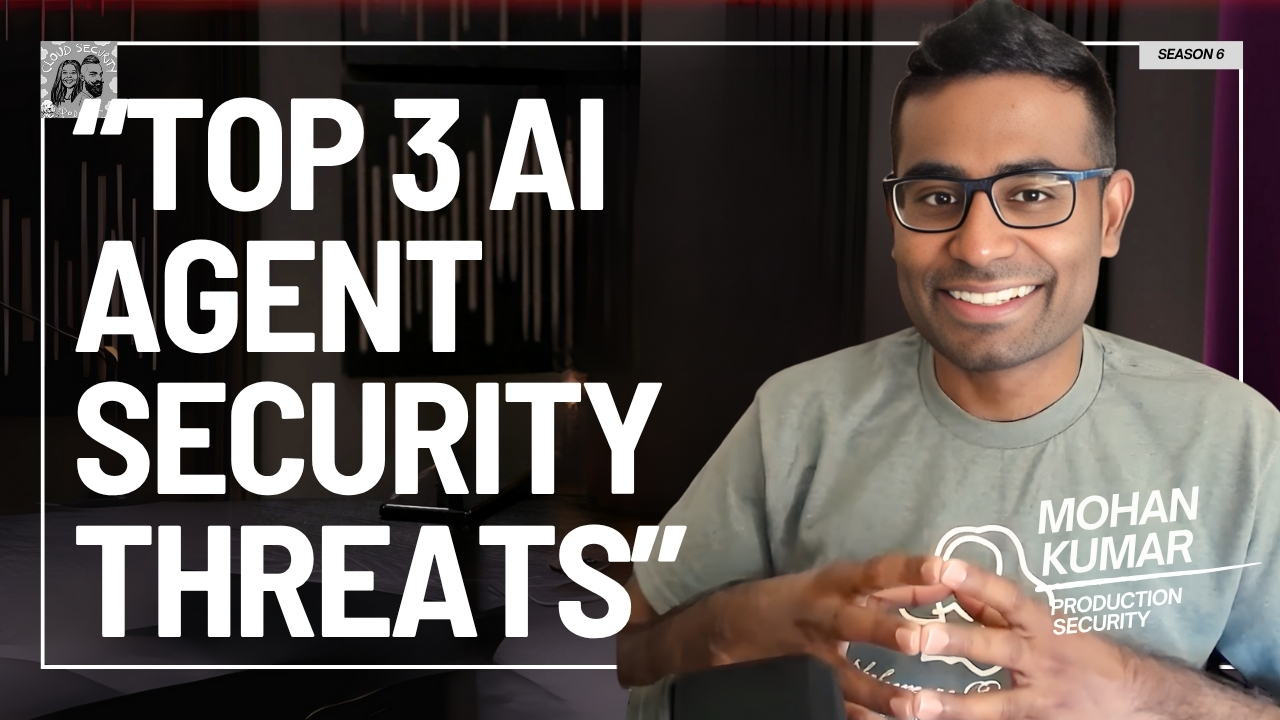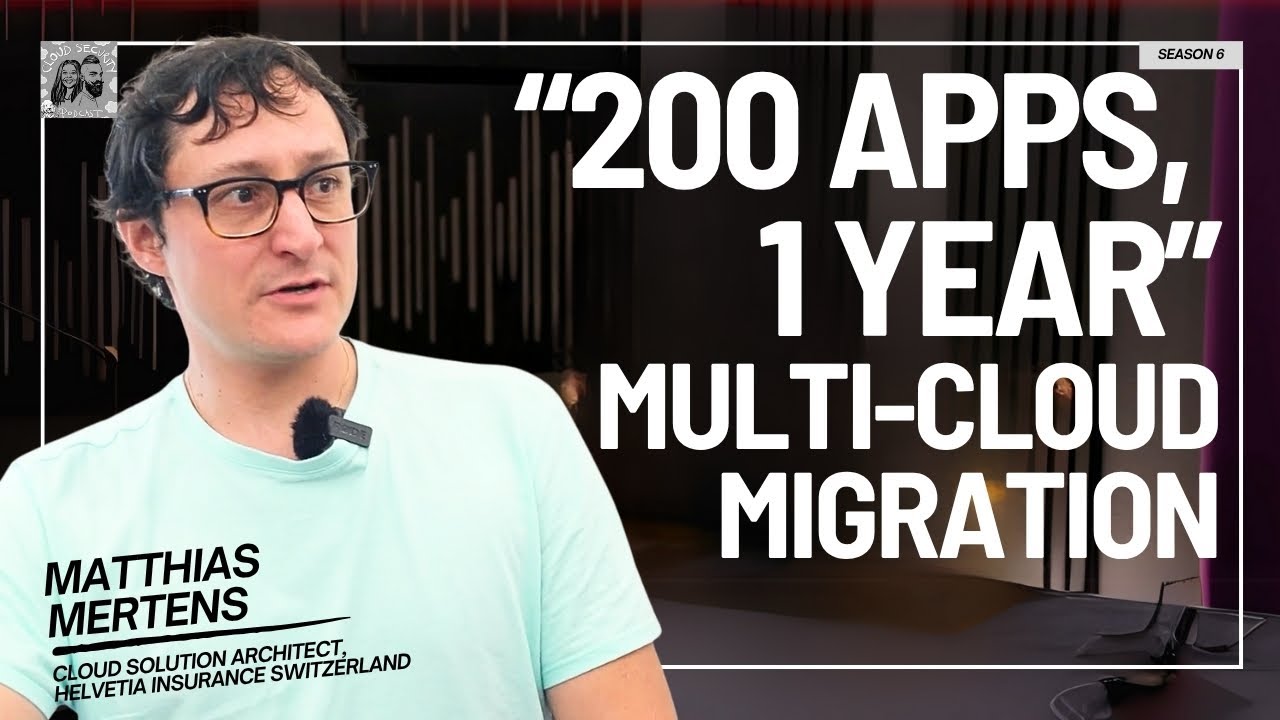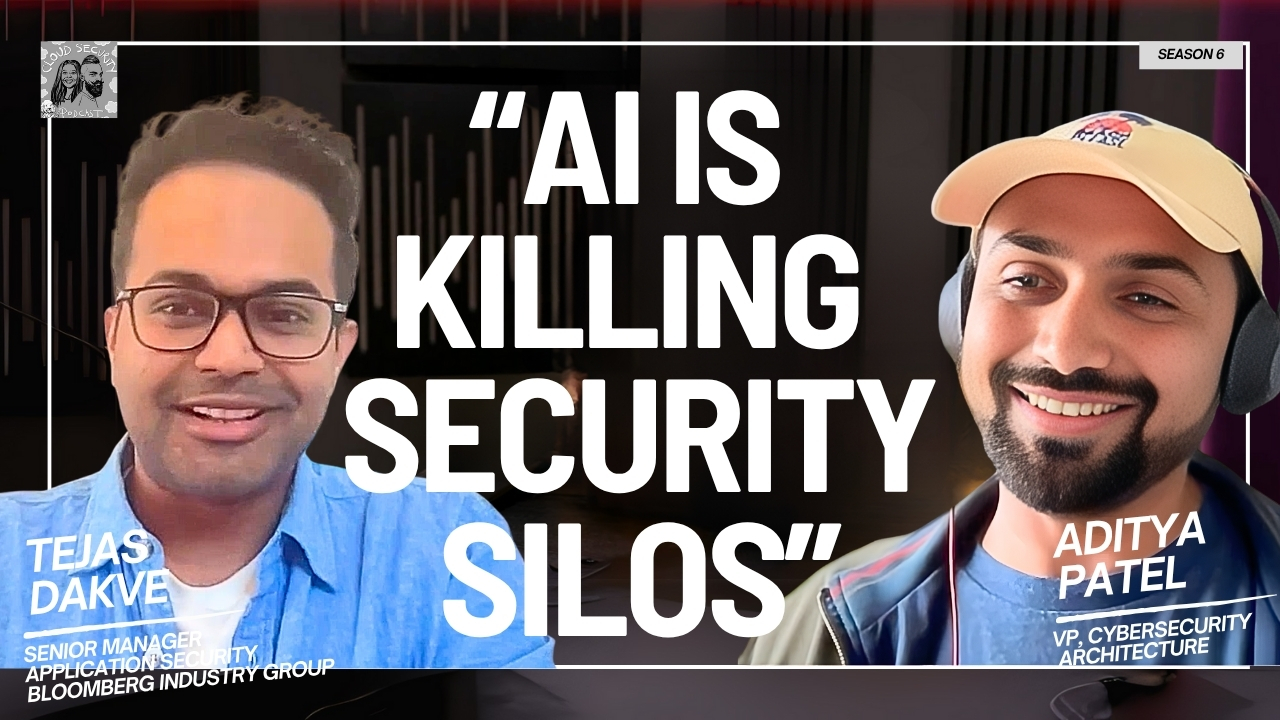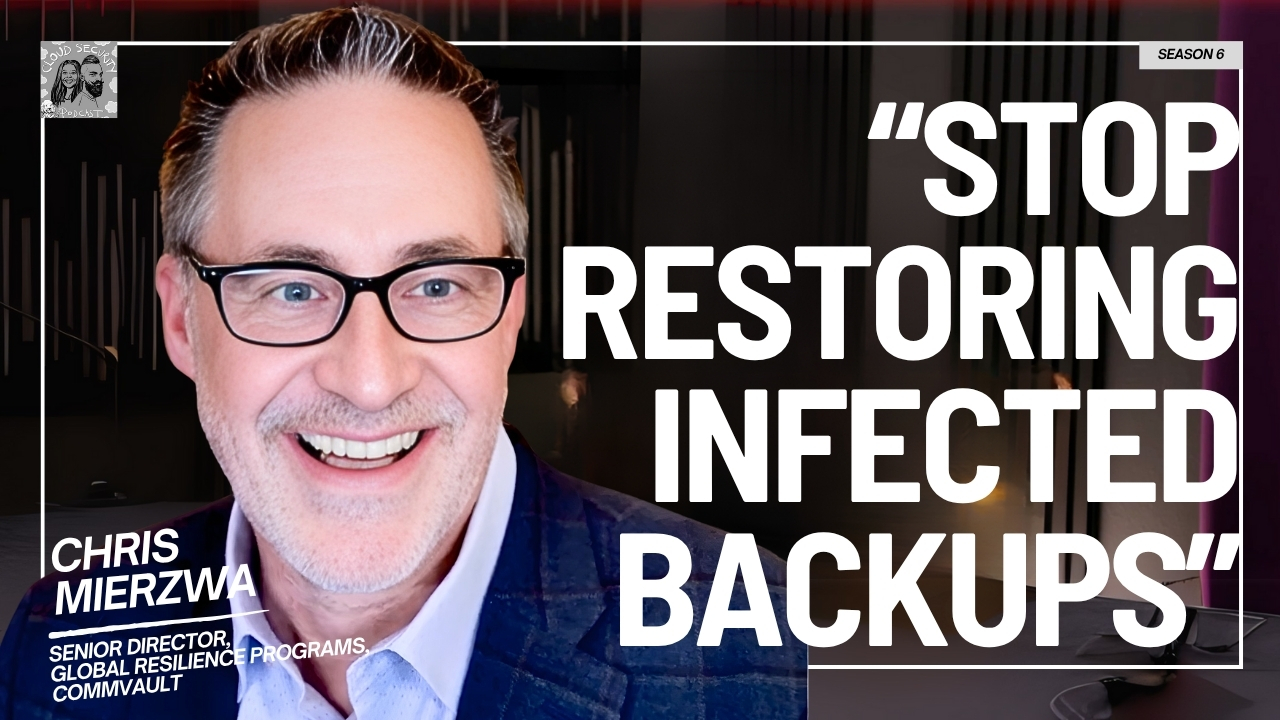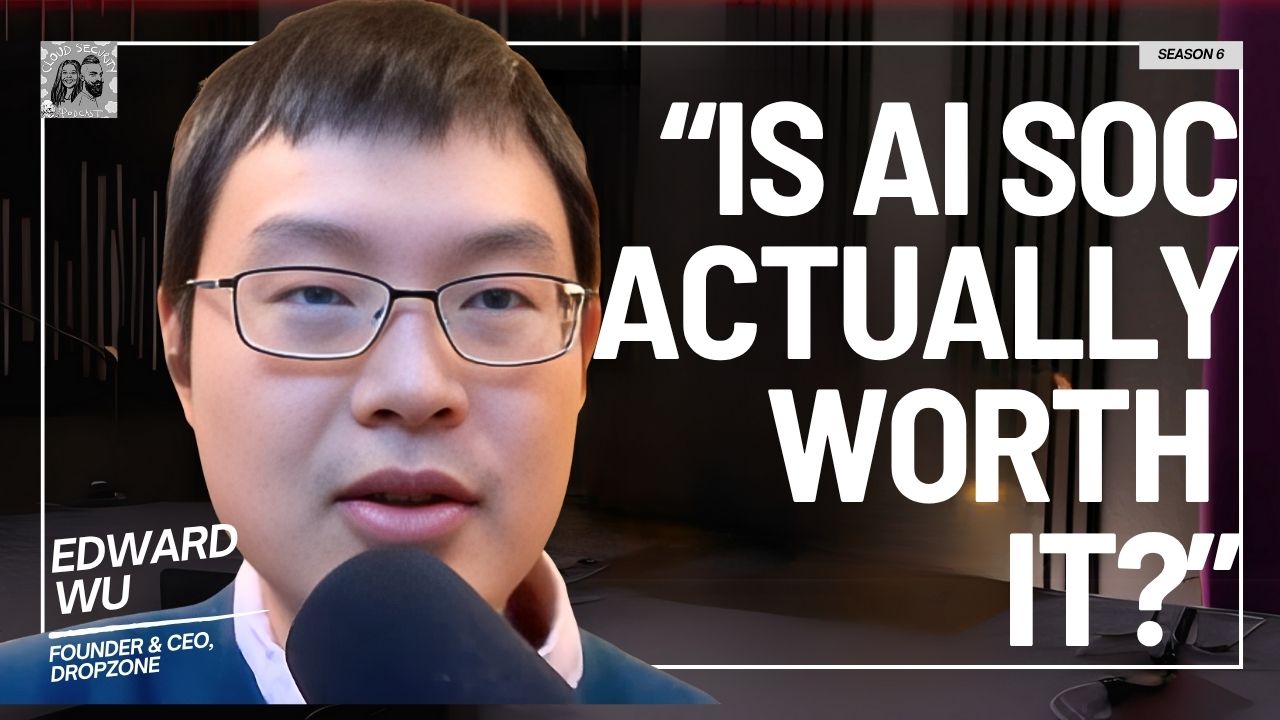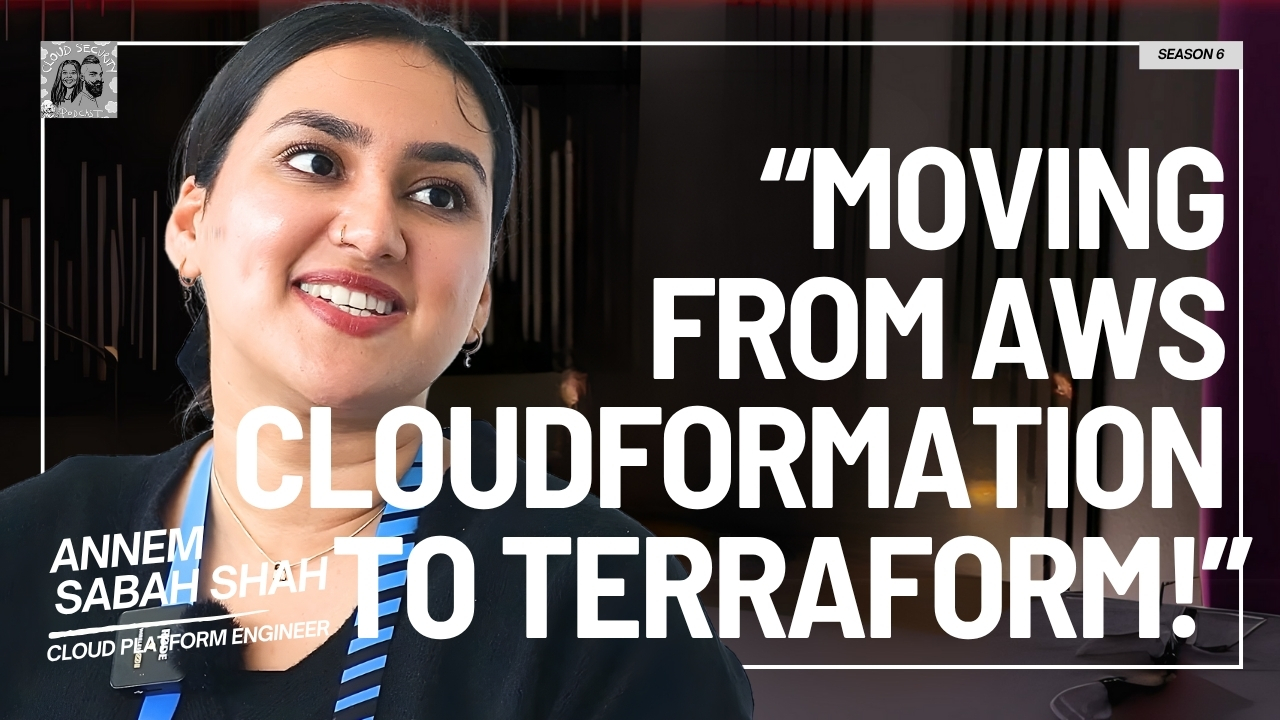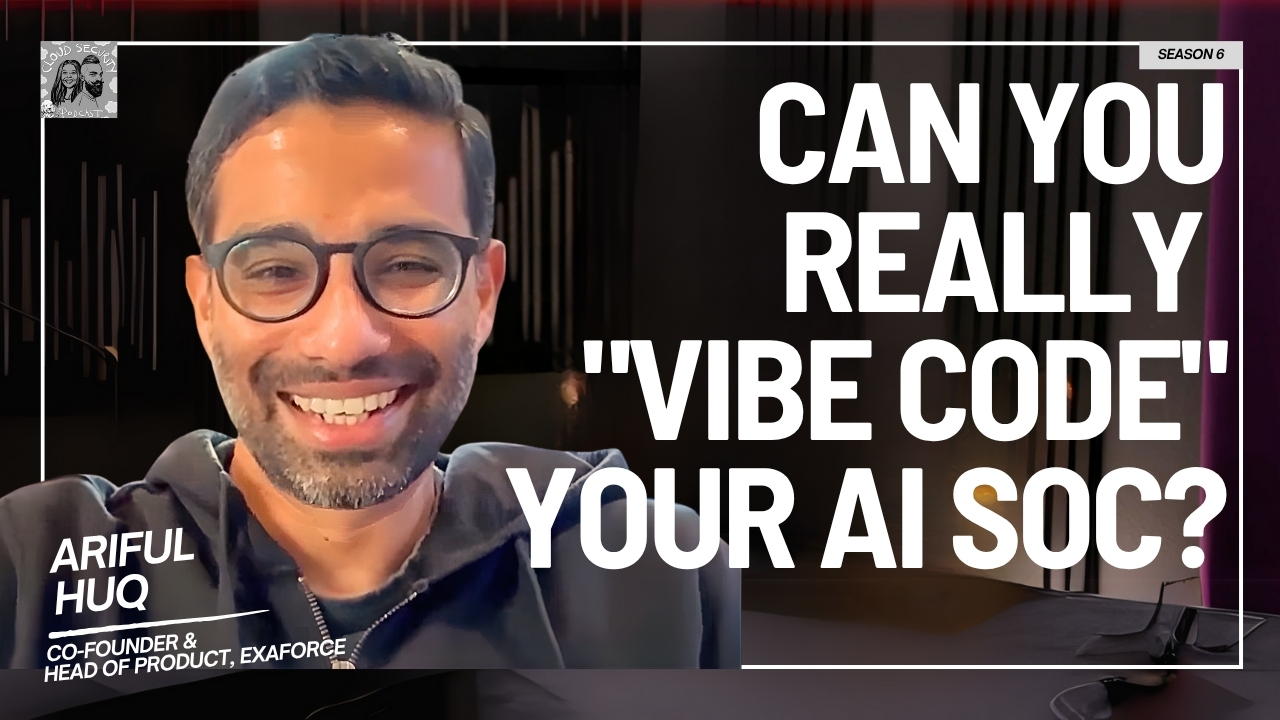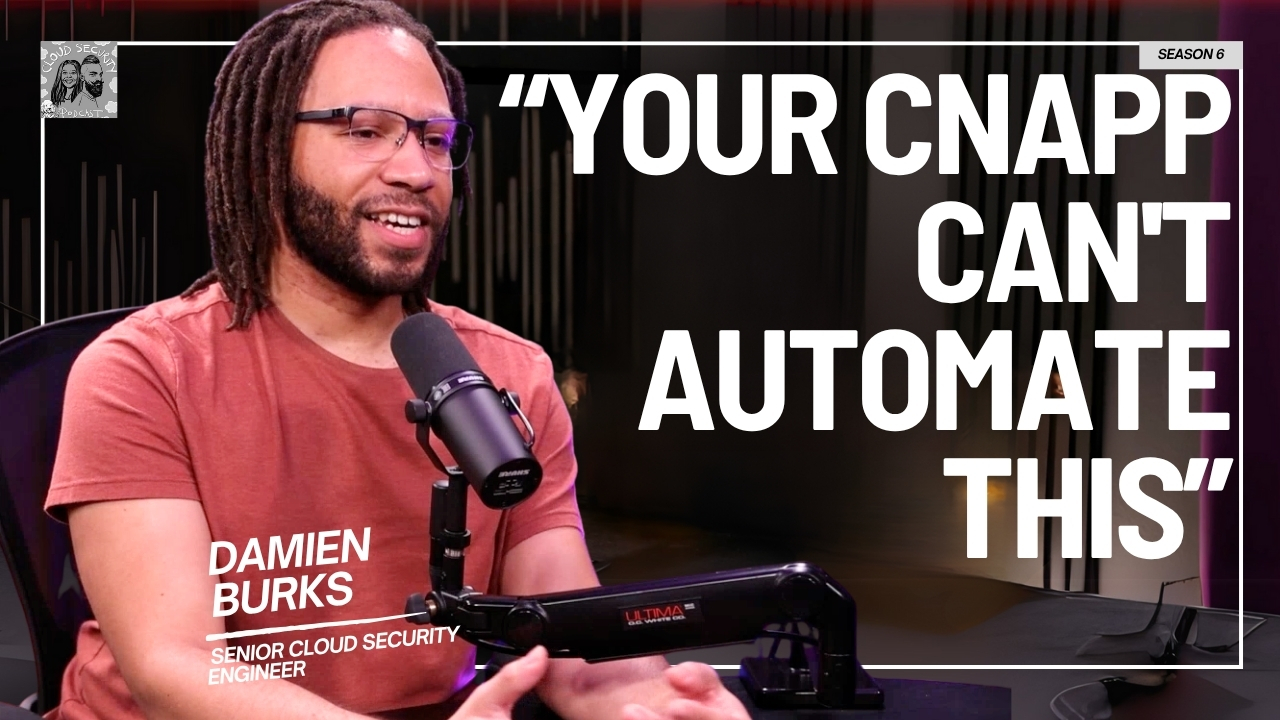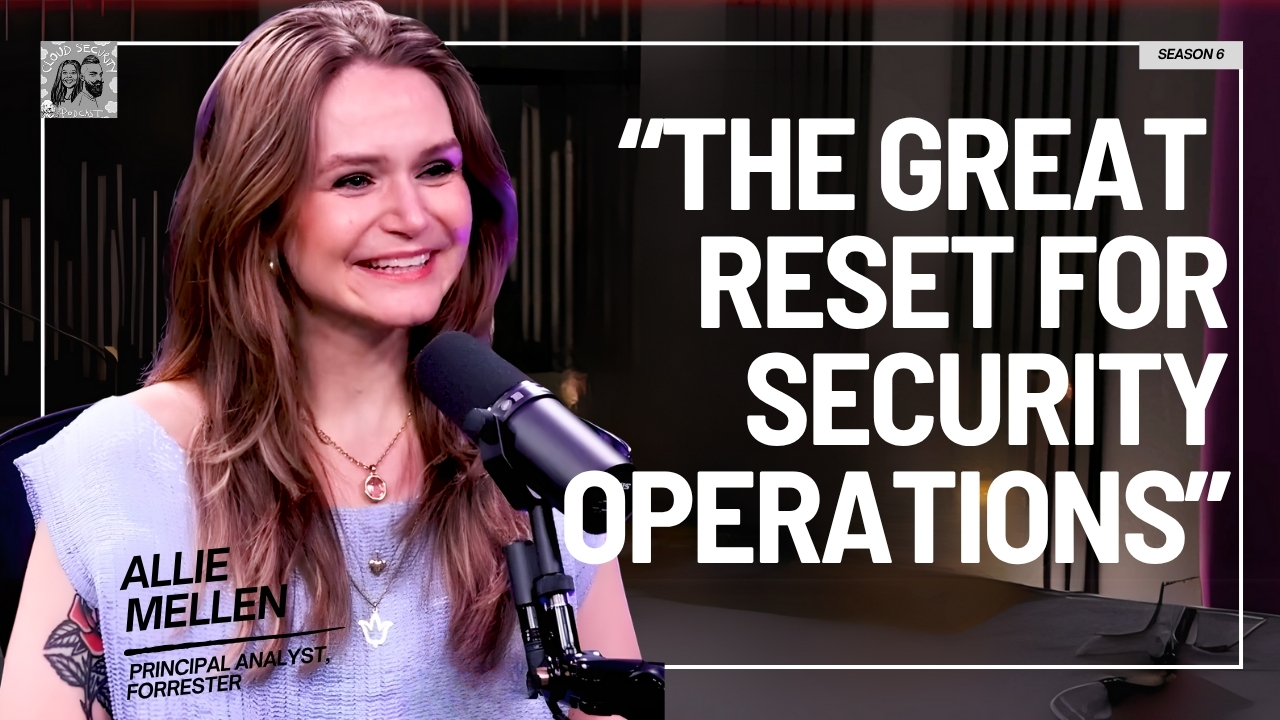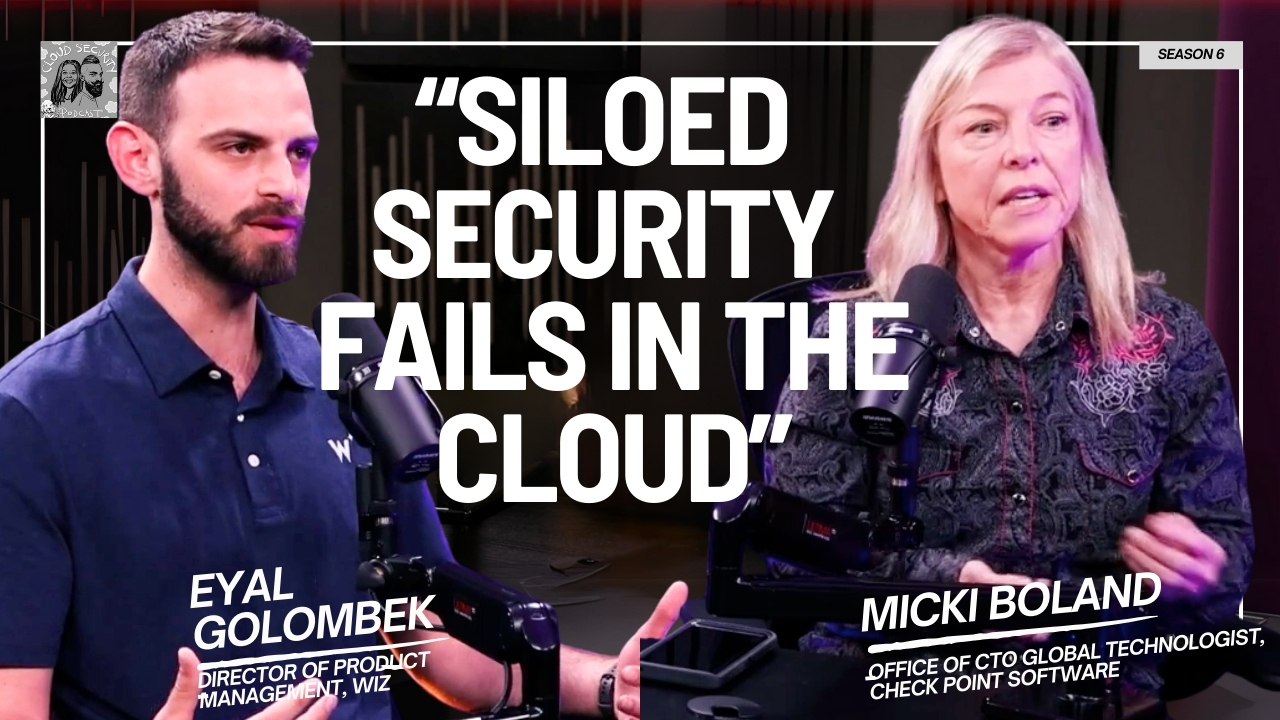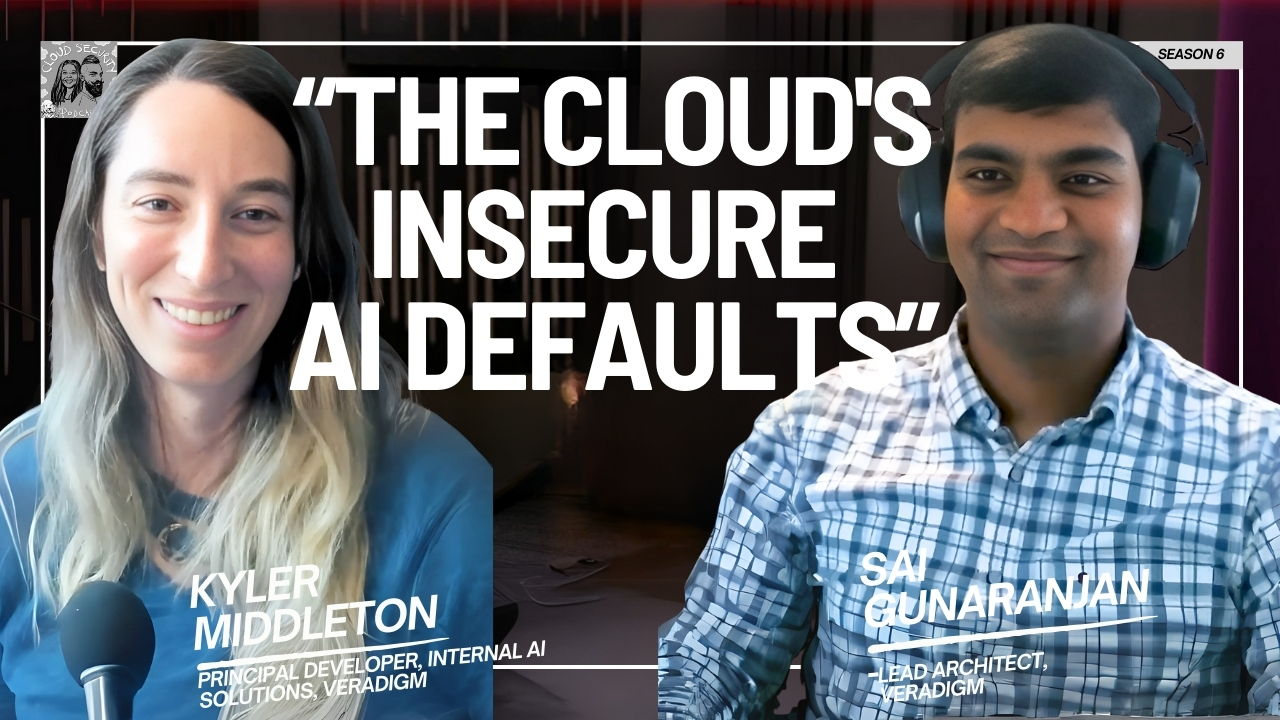Episode Description
What We Discuss with Zinet Kemal:
- 00:00 Introduction
- 05:44 Why Cybersecurity?
- 11:04 The Learning Curve
- 17:13 Do you need a University Degree?
- 22:22 Interviewing for Cloud Security Associate Role
- 25:26 Cybersecurity Certifications
- 33:19 Soft Skills required to be successful in Cybersecurity
- 42:30 Starting as a Cloud Security Associate
- 46:27 The Fun Section
- And much more…
THANKS, Zinet Kemal!
If you enjoyed this session with Zinet Kemal, let him know by clicking on the link below and sending him a quick shout out at Linkedin:
Click here to thank Zinet Kemal at Linkedin!
Click here to let Ashish know about your number one takeaway from this episode!
And if you want us to answer your questions on one of our upcoming weekly Feedback Friday episodes, drop us a line at ashish@kaizenteq.com.
Resources from This Episode:
- Tools & services, discussed during the Interview
- Cyberseek.Org
- Comptia Security+
Welcome to the show. I’m so glad you came.
Zinet Kemal: Thank you for having me. It’s no secret.
Saturdays afternoons. I mean, in my hour time, I always tune in, so thank you for
having me.
Ashish Rajan: I appreciate that. And I think you have an interesting story as well. So I would love to dig into it, maybe a good place to start I feel like I’ve known you. I’ve known about your book as well that your an author . I would love for you to introduce yourself to the audience as well.
A bit about yourself.
Zinet Kemal: Yeah, absolutely. So thank you for having me again. I appreciate that Ashish . I love your show. So my name is Zinet Kemal and I am a mom of four and a wife and moved to the U S about eight years ago from Ethiopia Eastern part of.
Africa and, , I had a legal career, but , we can talk about that later, , in some of the subsequent questions, but I had a legal career and then when I moved here, I decided to switch , a career in technology because I’ve always been fascinated by that. So. Fast forward, about three, four years ago, I found cybersecurity starting my career in internal audit. at a local government and then up until [00:01:00] last week also the state government has an information security engineer. So now heading to a cloud security spaces best buy. I’m really excited about that. So I’m also grad a student at Georgia tech. Institute of technology within the school of cybersecurity and privacy.
I’m also self published author of a number one bestseller book which I, , ranked the number one on diversity and inclusion type proud. I can show it later, but it’s been released less than two months. And it’s about, , to book about families, change, empower men and, , identify all sorts of things that we should be teaching our kids about self-love friendship, forgiveness , being able to stand up for yourself.
So, yeah, that’s just the little intro about me. She should.
Ashish Rajan: That’s pretty awesome. And I think I love the fact that You wrote a book as well. Cause I don’t know if that many cyber security people writing non cybersecurity books, which is, and this is by the way, a great topic as well, because your point about identity a lot. It’s subtle. It’s always around us. Like, , we walk around with our identities without even knowing it. And to be able to come [00:02:00] through, we talk about it. I love the idea, which is I’ve been every time, every opportunity that I get to talk about your book. I have been talking about it. So I would definitely love to get into that when we get into the show later on , but you mentioned you had a legal career back in the Ethopia and you move forward to the cybersecurity and you’re a student as well, right at the moment.
My first question is like, why is cybersecurity? Like, could have been, like, you could have been doctor, you could have been like an astronauts, I guess, but why.
Zinet Kemal: Yeah, true. I mean, , I guess, but like the reason why I picked initially, , when I moved here like I said into back in 2013, for me, I always wanted to get into technology, but , I never had any information about cybersecurity.
I don’t think it was offered, like has a program or maybe at least not that I know of. Yeah. So it was more like, , I’ll get into technology , do, computer programming probably, , coding that type of stuff, which I have no background at, by the way. So it was just, , like the love of technology, , the power of, , buildings to solve people’s problems.
That was the only interest that I had. So I joined a local community college, did my associates degree and then transfer to a four year university to do a computer science [00:03:00] degree. Still didn’t, , know for any cybersecurity courses, by the way, they don’t have it. They have it, even in those programs, it’s going to be only one class or something.
So so that’s how I found out about, cybersecurity is , the end of the graduating year, then with the cyber defense competition that was going on now at a university, I went to a state university here in Minnesota. I just went there and tried to find out what it is. I still appreciate the professor who was advocating for that.
Teaching that class, his name is professor Collins. So he, , promoted a team that, , you can come in and participate in that cyber defense competition representing the university. So. Join that , session to self-train yourself and it’s going to be a coach and everything, but that’s outside of, , outside time commitment outside of your classes and everything.
So it was on a Saturday. So I joined that and then that’s when I found I made the team that to represent the university. From Minnesota university. So that was like in 2018, so not long time ago. So that’s when I saw about like the interaction, , like the blue team red team and [00:04:00] how I was managing a Linux machine, , for the team.
So that interaction kind of interest in cybersecurity. So it’s not like I went for a degree in cybersecurity. And then it, wasn’t finding myself, , when you go to school, you end up doing a lot of programs, projects, and learning different programming languages. So I was finding hard time, , where I find myself in those spaces because you jump from project to project.
So I think, , doing that competition really helped me. So the reason why I picked cyber security, if you’re asking me now, what I know now is, , It’s evolving. I like the fact that there are different domains and how you can change gears and learn different aspects of cybersecurity because it’s so broad.
And we always use the term cyber security as a field. Or seven domains. So based on your interest, as you can carve out, your career path based on that? So, and also the greatest that you’re hearing, right? So you want to be part of solving a problem that that is always recurring it and happening.
Naturally, , as a mother , I like to protect things. So now, as , as I do for my children, so it came [00:05:00] naturally, I think in that sense, but I like the fact that. You have to be always, , learner in that learning mode. And then I liked the fact that it’s always ever evolving, so I never get bored.
I’m always learning. So , that makes it exciting for me at least. But at that point I had no idea that there was a career in cyber security. Gaining that exposure for people is very important, especially in school spaces. Maybe it’s better now, but back then, when I was going into school, I didn’t hear like a program.
I would have chosen maybe that one.
Ashish Rajan: So shout out to your professor as well for promoting cyber defense as well. Because I, it’s funny. A lot of people you mentioned being a mother has taken you down that path as well. It’s funny how many people who are ex-military as well going through the same protective nature of that. I mean, it’s almost like a job profile where you’re expected to protect either the company, the people around you, your family, and in an online world where There’s not much direction
when you drive on the road, there’s a sign for his stop, slow down speed limit and all that. There’s nothing like this in the end. [00:06:00] And it’s only a cybersecurity professional or someone who who’s a bit more inclined towards technology and learning. What’s the safest way to use this for my family. I’m so glad we have people like you in this field as well, because you kind of bring a legal background into this as well.
So I’m keen to know, considering you came from a legal background, what was the biggest hurdle to overcome? I know you kind of went to university as well. So did you find. There was a bit more of a steeper learning curve because coming from a legal.
Zinet Kemal: Yeah, absolutely.
Because, initially when I started the program, when we moved to here to Minnesota from Ethiopia, it was that winter time. And then now my son is 11 year old, but. Three. years old , and I was also pregnant with my second one, my daughter. So around April time, and then I joined the full classes.
And then during that time I was doing the math study cause , in the law school, you don’t have math classes that you’re taking. So I had to recall a lot of the concepts from back in high school or something. So a lot of it was. , forgotten or not used at all. So you’d be staying with the baby, how to study.
And then I took the placement tests. So when I joined the [00:07:00] community college, And then I passed everything. So I wasn’t placed on any math that’s our English classes. So I directly was put on a computer programming class. That was to answer your question. The main challenge was like not having the background for.
A lot of the concepts that were discussed there, number one, there aren’t many females within classes. A lot of people that look like me. So it was kind of intimidating people discussing about I’ve done this project in high school. I have no idea. , they’re talking about some of the programming concepts They’ve already done it to back in high school, which is in my head because it’s not something that , even if I had the background, we’re gonna be talking about those things.
Like number one, we sold. Shortcakes like back in Ethiopia, I remember that in high school we had. Per week, one hour computer classes when we are sitted with three people because I am Z last spelling. So we ended up having more students, even sometimes I’ll be fighting to get a task, , get a click on the computer.
So it’s crazy. Like we didn’t have that resource. Diversity level, , you will, you get [00:08:00] assigned textbooks, but you don’t have the luxury of browsing internet and then getting more resources. So I always like to compare things. There, you don’t have the resources, you have the time, but here, , being a mom of four and then you have all the resources and then you struggle with finding the time to use all of the resources.
Right? So yeah, one of the, the struggle was not having the background. So a lot of learning curve, a lot of extra time studying the math concepts because, , computer science needs math, right. Called all of those things, but. When those situations happen, I think you tend to study more. So I ended up getting A’s in all of them because that fear of, oh, I don’t know.
I have to study more, gets you to study more. So I think that helped me. And the other challenge I would say is , you see a lot of people going into computer programming and all of those. programs Right? So it’s something that is internal voice within you that, , they have all of those people who’s going to hire me, , like, , is my skills going to be usable at the end of this?
Like I had questions, , for a very long time, like I was doing [00:09:00] good. I even graduated with an award as a finalist for the president’s award for, , Hey, at the end of the program, I mean, you you’ve been doing well. Putting the time and studying, I think you had that societal things too.
Like a lot of the things that degree that you brought from back home is an usable thing. It always goes on, , in the community than, , ourselves, that internal voice that , the market is saturated. There are so many people who have good backgrounds. So how would my skills be. I had that.
So I had to admit that had those thoughts until, , I started getting internships and getting my first job, really. So those were some of the challenges that I like to bring up.
Ashish Rajan: And I’m grateful that he shared this as well. Cause I think 50 odd people who are watching this at the moment, but I imagine a lot of them would know someone who would try once you get into computer science technology, one of the biggest hurdle, if you haven’t started with a bachelor’s in some kind of computer background, learning a completely new language and like understanding the grammar, the logic and [00:10:00] everything behind it. I can’t even imagine how that would be. I’m glad you were kind enough to share , that diversity, especially that imposter syndrome that he was spoke about as well.
Yeah. Like, well, I’m from a legal background. , I haven’t done computer science properly shared the computer with three people. And coming from that, now you’re a cloud security associate engineer as well before this, you were an information security engineer. And I think that’s also interesting because you find that The transition of doing your degree, did that helped you get that internship and that intern helped you with that information security engineer or com?
I’m just thinking for people who were maybe in the crowd as well, maybe from a legal background or from a non computer science background. So they will obviously have the same hurdles as well. Do you recommend doing it, doing a degree as a first step to get into, I mean, computer science or.
Zinet Kemal: I mean, knowing what I know now. Well, maybe not necessarily. I mean, you don’t need a computer science degree to be in a cybersecurity. No, but I mean, it helps say that. Yeah, you have a computer at science, but not necessarily needed , to get into that. You can be doing that. [00:11:00] It there are different aspects of IT increase to like to get like the basic concepts.
Oh, networking and hardware and software at work, and , the different layers of education that working all of those things, but , not coding it and you don’t have to work.
Ashish Rajan: I’m so glad you mentioned this. I am so glad cause there’s a lot of people think that you have to be a programmer to be able to join cybersecurity.
I’m so glad you mentioned that you don’t have to be a programming person, but would you agree? You need the basic foundational thing, like networking that you mentioned, right. Like, there will be certain foundational pieces that need to understand, to be able to work in this space. So, right.
Zinet Kemal: Yeah.
I mean like, , education in any case would be important in terms of, , broadening , your knowledge and how to solve problems. But I think depending on which route of career that you’re going to pick, even in cybersecurity, Different domains. I think that there are targeted certificates that you can, , still, and then you pull it from there without doing specific, , hardcore computer science programming.
Sometimes some of the programmings that they teach are not even used in the real world. , like, I mean that you [00:12:00] can, if you don’t want programming language, you’ll be able to understand how the syntax and everything is structured. But , you don’t really need that. So having maybe certifications is something that I would recommend depending on that.
And that’s why as soon as I found out my interesting cybersecurity, formerly that cyber defense competition, that I did a lot of Linux and all of those self-taught things that we did to prepare for that competition is, , I started with network. And then so security plus and CYS in all of the sentiments, you start, you just keep on going and you pick up a lot of things.
You feel like, , maybe I’m missing this part of it. So it makes you want to go for more certifications and more knowledge seeking, I guess. So that’s the best part of it is like in cybersecurity. You want to keep on you? Can’t say that I have a degree I’m done. then, , I just want my work and come back and be done.
I mean like you need to upgrade yourself. You need to be listening to podcasts and webinars. I mean, those are some of the things that helped me in my career progression, even if it’s not a long time ago, because I graduated with [00:13:00] a degree in 2018. And then it started my internship because I was doing internships while I was in school in different departments at a local government.
And then once I know my interest, I started looking for, , security related roles within that organization while I was interning. And again, it’s through networking and having your interests be known to other people is so important. So that’s what I did that other interns knew about my interest.
So they eventually it to a supervisor, even if I wasn’t there. And that supervisor, , emailed me and set up a meeting. And I was fortunate enough that he believed in my potential that he went and introduced me to his boss. He turned for three months within an internal audit cybersecurity assurance program that the practices of the, that IT practice that organization, a local government.
So a lot of. But cybersecurity related all of it. So I was able to get hired before graduation there, so that role helped me transitioning to an information security engineering role. So being able to do fairly, not exclusively, [00:14:00] one thing, pursuing the certifications while also finishing the program and finding that out.
Close to what you need role within wherever you are, is kind of what helps me speed up, , with the progression of my career, right.
Ashish Rajan: That’s pretty awesome. And so I would love to know about the interview side of things as well, because I’m trying to quickly acknowledge Vineet is another regular
and I think he’s kind of like similar to yourself. He’s gone through a journey of waiting patiently as well as the, as he will say it because it’s a patience game as well. I’m sure Vineet would agree that it’s not about you apply for the first job and you get the first job as well. You kind of have to do a networking part as well.
But to, to talk about from an interview perspective for an associate cloud, secure engineer, people listening to this going, what are some of the skillsets? Like you mentioned, you dont really need to go for a programming language thing. What would be something they should kind of think of when preparing for an interview for a cloud security associate?
Zinet Kemal: Yeah. So past experiences, right? A lot of the things that you do in your past rolescould be in IT auditing role in the past that I did or [00:15:00] information security engineering role. Being able to translate that the skills that you grasped from that, and being able to translate it to the job descriptions for that role.
So a lot of it is like the past experiences, , basic concepts insecurity, the CIA triad, how you would basic, I am things like privileged access management, those types of skills came in handy. And also, , of course, basic cloud computing knowledge because I was also appearing on myself for that role.
I did like an end of last year, an AWS practitioner certificate and also. Plus he’s a CCS K to help him prepare myself. Wasn’t ready. I didn’t think that I would be getting into a cloud security role at this moment, but I was preparing myself, , in a way at some point and , that we’re our biggest thing so far.
So it was always telling me. Not yet, but at some point, , so I was just getting myself ready. So, and passion really is something that people would read from you and interviewing. And those are some of the things and then the technical skills and all of [00:16:00] those things are something that you would, , along the way and learn on the job.
Or some of the concepts that you’re learning through your certifications or labs that you did, , with the free AWS accounts that have, did I have done preparing for that? , talk back in the beginning of this year. It’s all about, , relating your past experiences and many other people that you have a passion to work in that space, I think can speak volumes and showing that your willingness to learn.
I’m sure that I didn’t answer all of the question right. To ask them the interview. But they see your passion and and your willingness to learn. And that’s when , you get the opportunity to be given the chance, I guess, in those specifics.
Ashish Rajan: Interesting. And so you mentioned certification as well then.
So from a I’m assuming coming from a legal background and people excluded this, or maybe from a non cybersecurity background or non computer science background, even that would you say the security plus or the CCSK that you’ve done jumping into that, was there any challenges in that, or was a degree going to help in excelling security plus, and other [00:17:00] certificates that you have.
Zinet Kemal: Yeah. I mean, it would depend on from which background you’re coming from. If I was coming directly from legal and if I was to pursue security plus , maybe I wouldn’t know, but I think security plus is the basic starting point.
I think I would recommend, although I started from network. But anybody could start from security plus as well, but , getting there. There are different materials and resources out there to learn, , on your own pace to get to that level. But I’m speaking from my experience, because I had that one class that I took in computer security, maybe that helped me a little bit, , cause like, , learning, you’re forced to do all of the assignments and everything.
Personally, I enjoy picking my own certifications and studying versus studying for a master’s class or structured force in classes. So I think depending on from which to study, people are coming, I think the learning curve might be different, but I think it’s doable . Absolutely security. , CYS a depending on, so there are resources, so it depends on yeah.
How much time you’re willing to commit [00:18:00] and your passion and your desire to be in that space. I think I’m determined that, so yeah, a lot of it is like self to study for me. So it’s committing the time and yeah. I can do it if I can do it. So that’s all I’m going to say.
Ashish Rajan: Oh, I was going to say the same thing. , if were you with a family of four young kids can do it and even get the word at that point. It’s like, I don’t think anyone would have an excuse at that point. But it’s just, about committing the time for it as well. So to your point, security plus is a great starting point to get the foundational pieces, and then you can.
Try and go into specialization a bit more. And then that would also, I guess, to what he was saying earlier, that for sure, a couple of things, it also show that you’re passionate about the field. Cause you’ve kind of like come from a non-computer science background. Taking a certification, which is completely computer science related, took that.
And then you’re using that as like, oh, I’m going to have an AWS certificate or an Azure certificate on top of that as well. So I guess, would that be a sign of showing that you’re passionate and actually completing the certification? Not just I’ve attended the classes for it. I guess there’s a subtle difference there.
Would you say that would be a, I guess a good example of [00:19:00] showing passion? I, that you’re passionate about the field to the next
Zinet Kemal: Absolutely. I think so, too, , with the degrees, of course, , HR might have their own. , do you have a, especially for someone who’s like an immigrant coming from another country, , I needed that personally, , like to get into a space that I want to be, but showing that specific certifications is going to show that, , you have the willingness to commit time to study and , it requires a lot of time commitments, especially outside of work.
, working the kids and everything , delivering that certificate. It’s not only getting certificates, but also being able to questions in the interview because the paper is not only going to do the job it’s you and your skills are going to be going the work, doing the work. So , you need to grasp the knowledge and do the proper.
Or send me some learning or not, , you’re willing to. So, yeah, certifications definitely that , it forces you to study, it forces you to, and it gives you that moral of accomplishment , to move forward. And , it’s not about being a good test taker. It’s about being [00:20:00] also learning new stuff, whether you like it or not, you’re going to learn new things, , while you.
Yeah,
Ashish Rajan: for sure. Also I love that and I think the next question that I get asked quite often, and I’m curious too, with the associate role a lot of people have that question that, Hey, I don’t have an experience.
So I can’t answer this questions in a interview. What have you done for cloud? And like how do you kind of go about answering those questions where it’s like, or, I is it the more focused on finding the associate role where the certification knowledge is helpful to get the job? Like what, what’s your advice on that?
Zinet Kemal: Specific interviews,
Ashish Rajan: Cloud Security engineer role. But I think that they feel like, oh, I don’t have the experience for it. So I would not make it like, , people would have self doubt in it. So , what would your advice for.
Zinet Kemal: I have that self-doubt every time, like every come into interviews, going through, , all the phases of the interviews that I did.
So this role I’m starting next week , I didn’t even apply for the role. I had the opportunity sort of came to me, which I had to interview three or four times, of course, as a phase of interview. But [00:21:00] with each time I was always saying to myself, like, this is something I want to do. I was preparing myself, but I tell myself I’m not.
Because I’ve worked in other products. Although I was doing AWS, I have AWS cloud practitioner certificate. I had CCSK this year and also I was doing a SANS training, which I got the DCL D on the cloud security central. So some people are harder on themselves. Like you have to be not perfect, but yeah.
Some of the things that , that you need to learn and see after you had that opportunity in the actual work to see that, , I can do it, but I had that self doubt myself. So I understand that. So if you’re doing, and if you’ve been preparing for that role, I mean, give yourself permission and say that, I’vedone my part and now it’s just give it a try.
Nothing, , will be taken away from you from trying and failing. If it doesn’t work, that means that it’s going to be a lesson next time. And then , you see a lot of things. So I actually had , , an ACSM mentor, , him, AJ is my mentor. So when I told him, he said that you should do it.
, even if you’re not pursuing that role, I think it’s a good way to. And then a lot of [00:22:00] things, , like, or what are some of the things that you’re missing in the industry, like tools then through that interview process, you would be able to learn new things and prepare yourself for the next one.
So yeah, I would say give yourself permission. And I included my I’ve also worked.
Ashish Rajan: Thanks for sharing that personal experience and shout out to AJ as well. Another previous guest, , he’s pretty awesome. As a friend as well. So we’ve spoken about the technical skills and the experience part.
Are there any soft skills that people should be because you’ve done some work as an intern? Are there any soft skills, because I feel like universities and colleges don’t really talk much about the soft skill part. It’s mainly about do this degree, do that certification. What kind of soft skills do you think people should have, , especially who are graduating now in a world.
A lot of us were in locked down remotely. No idea what, I mean, I guess degrees would have been online as well. So what are some of the soft skills that can help them succeed in the role? Even as a cloud security engineer or cloud security associate engineer, or like an information security engineer as well, which was the previous role.
Zinet Kemal: Yeah. I can speak from that perspective, I guess, , and I would like to refer those skills as essential skills, [00:23:00] not so soft, , important. So they’re very central skills, like number one, being like communication, right? Being able to translate those technical stuff to a non-technical audience, as a security resource you are certainly.
Specific business that you’re working for an organization. So you need to have a good communication skills. Being written on a board, verbal are very important. I think essential skills and then being open-minded and have the patience especially with my information security engineering role.
We work specifically with developers and project managers. Some of them. Projects that we work on. So having that positive relationship building skill is very important versus, , your work in silos. That’s not how it works. So specifically because I get involved working with application security type of work with my previous role.
So those I think are very important. Being able to. Problem solving analytical skills, , being able to be, , observant and being curious analyzing your decision asking questions [00:24:00] and being, , type of, , detail oriented. Some of those skills can be transferred from other roles that you have.
Security or not are very important that can be transferable to a cyber security role. So when we’re talking about detail oriented skills, like that could be applicable to, , when you’re analyzing logs or beeping to, , finding the root cause of a data breach. , talk we’re conducting digital forensics, all those spaces insecurity and benefit from being, , having that skill of being detailed, oriented or analytical thinking.
Yeah, I would say, and those skills are very crucial as an essential.
Ashish Rajan: A hundred percent. I think even though I can vouch for the translation one as well because I feel like even no matter how many years you spend in cybersecurity, you’re still translating cyber security to everyone. And as a simple example, it could be, you could be translating cybersecurity to your family.
On a personal security level as well. , you can use that as an example of anyone who’s listening and can use that as an example in the interview, if they want for, how do you translate security? How do you explain to your parents how they should [00:25:00] use Facebook or not use Facebook?
I guess that’s another lesson in online security. I think it’s funny when you just share it.
Zinet Kemal: Absolutely. I mean even the kids being gaming all the time and getting exposed that that’s what I was. That’s like a second book. I know thing that’s in the works is like how the kids online. In this world where they’re they do everything like their education and gaming online, , like it seems like, , the digital world and the physical it’s very important and it’s going to continue to be.
Ashish Rajan: Yeah, a hundred percent. And I think I just wanna quickly tap into Vineet over here as well. Cause he’s sort of talking his experience about first break through is always challenging many times it depends on the person to take a chance and actually thats so true as well. I like what you mentioned with your experience.
I want to have a chance on you and said no, it’s, , I think Zinet is the person introduced you to their boss as well. That’s where the patient’s game is.
Zinet Kemal: Absolutely. Yeah. That’s what it is. I’m always grateful to that leader, , people seeing other people’s potential and appreciating that and , believing in you to give you that chance.
So, yeah, I agree with you.
Ashish Rajan: Awesome. And I think I that’s. Good takes me to the otherSANS conversation as [00:26:00] well here, because you kind of did a course forcloud security essential, but then , you spoke at SANS as well at Summit so that another skill I imagine people should definitely go have like presentation skills.
So kudos to you for doing that. Could you tell us a bit about the Talk that was before you got the cloud security associate engineer role as well? And I mean, I can talk about imposter syndrome over there, like not even in the field, but talking about, so if you can probably talk us a bit about your motivation as to why that topic and why AWS, any thoughts that can share.
And I’ll probably include the link to the talk as well in the show notes for people who maybe listening to this later on what was the inspiration.
Zinet Kemal: Yeah. So that was back in June. The inspiration behind it, it’s simple. It’s I had public speaking challenges. Like I want it to work on that. So I told my mentor a day that I want to work on those things.
And the one thing that he said that resonated with me is the only way to work with your public speaking fear is to do public speaking. So I took that advice. , soliciting [00:27:00] for people to submit for a cold call paper at that time. So I just became bold and just said, , I’m going to do a talk and then submitted a call for paper that got, so I think the AWS concepts, because that’s what I was preparing myself to.
So I thought that would be a good learning opportunity for me here. , you learn it better when you’re trying to teach other people. So. I pick the AWS because it’s easier to learn. And probably, , the other clouds also have their three tiers and everything, but it just came in handy for me, , like with the wide adoption and being that, , our kids so easily pick the AWS.
And then yeah, so the main motivation is to myself to be able to sit in front of a computer and do a live demo. Betting on myself to work on that. So I think didn’t expect a one, a 1.7K people to attend that live, but it was really well received because I’ve tried to teach myself doing it.
Three labs and everything to prepare for that 30 minutes talk. I had a really good feedback afterwards. So that went really well. So the motivation [00:28:00] is to work through my public speaking fears . Absolutely.
Ashish Rajan: You definitely get it well, because even though I couldn’t attend because of time zone, but I still heard a lot about it , you should hear Zinet’s story. Who or what is this? Is this the same? Zinet like, yeah, , she’s done a fancy security talk . I’m like, wow, there you go!? So You did a great job by the way. Would you say that the essential skills that you were talking about earlier about attention to detail and being translation, would , presentation be important as well?
Cause I feel like a lot of people would think. A lot of people may have a lot of certifications already. How do you stand out in that space? This could be looking, I mean, and it’s not standing out in the context of, Hey, look how amazing I am. It’s more in the context of, Hey, I just want to be more visible.
So I increase my probability of getting a job. Presentation skills are important. There is.
Zinet Kemal: Absolutely. Yeah, I think so, too. Because I think you’ll be building , your personal brand would be making yourself available, like to the community in some way of giving back and also building your own skills because , more or less you with any role, you’ll be presenting to leadership.
So [00:29:00] that skill remains very important , in any type of roles that you are going to assume in. Those terms are very controversial, but it’s going to be very important, essential stuff.
Ashish Rajan: Oh, cool. Awesome. I’ve got one more question, kind of to bring this home then. So for people who may, I guess, who have listened to the whole thing, And still a bit confused, but maybe a bit lost in where to start for someone applying for a junior role transitioning into a information security kind of a role, like an associate role, what would you recommend then based on your experience so far now if you could go back and speak to Zinet again when she came to Minnesota how would you I guess what would your advice be to her for.
I guess getting into that cloud security associate kind of a space.
Zinet Kemal: So if they want only in cloud security, I would say it’s study and start with AWS cloud practitioner study cloud. But there’s a website that I like usually for people who ask me like, Yeah, I want to start doing the cybersecurity one too.
I do always say cyber security. So broad, different domains, about eight or seven. So find your area [00:30:00] of interest. And I like this, a website again, shared by that professor back in 2017 and I still would call it cyber seek.org. So depending on which role you’re in, how do you transition? Like it’s an interactive type of site where you can go from beginning from a beginners to intermediate and advanced type of roles.
So I always sit at that site , like see where you are and find your area of interest. And then depending on that, , your area of interest, like find learning resources, but to your question, if it’s going to be. Just like what I did. I started with AWS cloud practitioner. I studied that got certified.
I was going to go the route of, , moving to cloud solutions architect because a good route again, but I stopped that one and I wanted to be a general cloud security. So that’s why I did CCSK , which is more dealing with cloud security knowledge from CSC. And then after doing that, , I got the opportunity to do the SANS cloud service provider which is a really good SANS course.
So that’s the route that I would, [00:31:00] depending on which, because the resources are there, it’s about, , if you’re interested in that and the market is there, I mean, jobs that are out there, but once you are, you won’t have the problem of finding it resonates and works. Finding it interest, is that important because you may not be for everybody so fine.
No. That you feel passionate about it. And if you like it, then. Yeah, resources out there. So just commitment, preparing yourself and then
Ashish Rajan: just two. So right in there, because that reminded me of personal story. Cause when I started in cyber security pentesting or hacking was like the number one thing where every person wanted to be a hacker. And I kind of went down that path as well. And the first month I remember hating. Going, I cannot believe I have to go through a manual.
And I tell the story quite often because I don’t think people talk enough about other fields in cybersecurity. Like if you watch movies, no. Talking about, Hey, look at the cloud security engineer. Yeah. Yeah. Like back, may the hoodie like the no one is talking about like a cyber, because wasn’t being someone who’s just like this normal person who just happens to be a blue team [00:32:00] person.
Right? No one talks about. That person, but they talk about like this hacker male, female, whatever, they’re all hackers, they’re all just like super amazing computer. Just like geeking your way. And you’re going, ah, there’s more to that.in cybersecurity , but I’m so glad you mentioned that as well. But for me, I personally felt it’s a long game.
It’s a marathon. So if you find something you enjoy. Definitely focus on that in that field. But in saying that you and I can answer that easily because I feel like we have found that, Hey, maybe this is my current favorite place in cybersecurity, but for people who are looking, I would say, keep exploring, keep an open mind.
On that note, I think that’s a technical question that I had at the thing, just part of the interview, but I would love for people to know a bit more about you as well, support the fun section as well, which I’m sure. Where you heard so often as well, but I’ve never asked you. So this is a perfect opportunity that I’ve never asked you before.
So now I can ask you, what do you spend most time on when you’re north working on cloud or tech?
Zinet Kemal: I’m not writing a children’s
Ashish Rajan: book. Yeah. All we need, right. That’s right. Yes.
Zinet Kemal: That’s a recent thing. I wrote like two months or three months ago, it started in March and [00:33:00] then that’s when it was done. But yeah, spending time.
I don’t think I ever have with like the free time. It’s always the kids. I mean, I have four kids. Between 11 year old and 21 year old, 21 month old toddlers. So yeah, I got my hands full, so I don’t, yeah, it’s always about, , either I’m braiding my hair or. Taking them to the park. So it’s all right now, but hopefully I’ll find something to do
Ashish Rajan: well, hopefully. And I think you find that maybe once kids reach that teenage years, maybe there’ll be a bit more easier as well. Next question. What is something that you’re proud of? It is not only social.
Zinet Kemal: I mean in this world, an eight on that, on social media,
Ashish Rajan: but I thought the whole legal to cyber security thing was not on social media. I could not find it until I spoke to you.
Zinet Kemal: Like a lot of the things, like I mentioned earlier, Side of the thing, like , anything that you do overseas isn’t valuable. So until recently I wasn’t talking about it. So yeah, I had a Law degree.
I was working in , the legal advisor for a government agency back home before I moved here. So yeah, I think that that can be one of it, but Yeah. And a lot of [00:34:00] the things that are, I like doing crafts when I have time back when I was in Ethiopia, if the school is closed, , I’m always sewing and doing stuff for house decorations.
I don’t think that’s on the internet. So that’s one thing that like, when you talk about that, I just recalled, so, okay. Oh wait.
Ashish Rajan: So do you like knit , like like knit outfits for your kids?
Zinet Kemal: Cause I told you there’s no time, but was back home. I used like a, , the senior machine to crafting and then also like handmade things that you wear.
You put it on the wall. I used to do that a lot. Like I’ve been doing that since I was like a fifth grader or so, so if I had time, yeah, very young, even like I was sold that. To be using that machine. But because I love doing that, I used to do it like in my summer, people are playing. Crafting and doing and creating stuff, , designing like sewing machine, like, but, but you’ll be doing something that is like a pillowcase or something that you came on.
Ashish Rajan: I’m glad you mentioned the brand name as well. I don’t think I’ve heard of the singer brand for such a long time because , my mum used to have the same thing. Well, I guess every household in India had the same thing as well. It [00:35:00] was like this big machine thing is I had like a wooden case on it as well.
Like he’s the one that my mum got and
Zinet Kemal: then you roll it, then you have to use your hand. And then when I’m walking, I feel like the, like the floor is moving.
Ashish Rajan: Yeah. I, I feel it’s funny. I it has always memory that asteroid something. I’m glad you were going to board the name. I’m going to remind my mom about it now when I call her next. Cause I think. I don’t think that brand exists anymore. But that was cause I remember this cause I got the same advice as you that, , you’re too young to use it because of that needle that you just like, just pop in, pop out.
I think someone in my neighborhood that had their kid who basically put his finger through anyways, it was like disgusting story. I want to stop myself there, but I’m glad you shared that with us. So last question. What’s your favorite cuisine or restaurant?
Zinet Kemal: Yeah, so. Going to have to be Ethiopian food cause they’re all spicy Jeddah bread. And then the dough, what, which is called
Ashish Rajan: the
Zinet Kemal: that’s maybe like kind of a role I heard and the spiciness, but I like it thin dishes,
even though we had more often here
Ashish Rajan: yeah. I was going to say like, I think we have a huge Ethiopian population here in Melbourne as well. It’s European and Somalian [00:36:00] population. So when you guys come over to Australia, I would love to takeyou guys to one of these ethiopian places as well, but it is Def it’s cause we have it in a whole big plate as well. All of a chair, a big place. If you go as a, as a group, Everyone’s eating off the same plate and this is massive in Injira bread. And that’s , all the food is on the corners of it and just like buy through it, but reminds me of the middle east as well.
But yes, that’s right. It’s just normal to use your hands. I mean, I know why people use like fork and knife, but like but it’s the math. It must have experiences. Oh, actually we have vineet as well whose heard of the SInger Brand there you go. It’s like every, everyone knows, think about it. I’m going to Google after this as to what, what happened to singer.
I’m so glad you’ve shared all of that and your knowledge as well. I’m sure a lot of people have a lot of questions. I’ll definitely encourage them to connect with you. Wait, I want to take a moment. Talk about the book. So if you can, I noticed the Amazon number one, seller in the diversity section as well.
Oh, you have it with you as well. Amazing.
Zinet Kemal: Yes, I do. I to have a copy here. Yeah.
Ashish Rajan: Perfect. Can you tell us a bit about what’s the inspiration behind that? And , you’ve touched on this in the beginning of the call but I’m curious cause , you’re already doing like your [00:37:00] degree. You’re already doing so much and four kids as well, but , what compelled you to kind of go down the book?
Zinet Kemal: Yeah, so all inspired by my daughters. So I have to two daughters and two boys, so inspired by some of the conversations and questions that they bring from school, , like wearing the hijab, his cup that I’m wearing. It’s it’s related to that sort of story about, to empower and uplift the young girls who choose to wear hijab.
And in the story there are, , So within the school setting who had questions about, like, why is she wearing the hijab? Is it because her hair is bold? Or is it because her hair is dirty? , some of the questions even like grown-ups might have but in a way like to empower girls.
So, , the family training them conversations within the book cause people have
Exactly. So , how did she find the price to explain, like I’m wearing this as part of my feed, then that helps people, , to appreciate the diversity and inclusion and while embedding it, , appreciation for other people’s culture too. So it’s a multicultural , like color pictured a book.
So it’s [00:38:00] interesting. I mean, it’s really doing well. It was number one and a bestseller on Amazon, but I just recently released the think. So it’s also available on Barnes and noble. So it takes a lot of things and I’m already building also not a cybersecurity committee, but also an author’s community on the side.
So it’s been an interesting journey to do this, like in the pandemic. Dealing with , like full-time job grad school and also, , helping the kids doing distance learning in three different classes of plus a, baby. This is something that we’ve done together. Like as a project, like the kids who are involved pretty much, like they were like, when is the illustration going to be done?
Like. , I learned the whole process of self publishing or clubhouse, just joining rooms while cooking or braiding the girls hair , that type of thing. So it’s it’s a big satisfaction to it. It’s something that you have control up cause you’re solving. And then it’s different places as well.
So now I’m getting it into the kids to school. Kids are people are inviting me to. I don’t know, the story is compelling enough and it’s teaching kids to appreciate all these things. So I’m happy. [00:39:00] I’m pretty happy about that. Like going to libraries and kids to school as well. So, yeah. And also working on a second book.
So
Ashish Rajan: like how much time do you have you say advise you one sentence? Like you don’t have much time, like I’m just writing my second book now. I’m like, you clearly are, are so passionate about this.
Zinet Kemal: Once you start doing the one and then it just, the idea just keeps, I mean, you never run out of inspiration when you’re having four kids, they’d say something and then, oh, maybe that could be a book.
, it’s someone else’s problem. The book that you write is not for you, it’s for someone else to solve a certain problem, be either children or a grownup grownups books. That’s something that I’m learning. So the second one might be, , even if it’s a children’s book, it’s meant to combine something over security and a children’s book.
So it’s going to be interesting.
Ashish Rajan: I would definitely be tuning in because I’ve been recommending the book to a lot of people as well. I think it’s. It’s a great conversation. And it also is a great conversation starter, but at the same time, it’s a good education piece as well. For a lot of people, for people who may not have grown up in a , multi fate kind of environment.
. It’s kind of like voodoo magic or whatever, I [00:40:00] guess they, like, I don’t know what this is about. I’m scared of it, but I want to learn about it as well. It’s I think it’s definitely, I would definitely encourage them. Check them out.
We’re linked to the Amazon version there so people can check them out. So if you’re going to write one more cybersecurity book, I’ll definitely love to do like a thing of like a book club thing with you or whatever, because we were doing the book club thing.
So I’ll definitely have like that version as well. I was going to say, where can people find you on social media to connect with? You probably learn even about not just being a cloud security associate engineer, but also being an author. So we can then connect with you and where can they find you?
Zinet Kemal: Yeah. I love LinkedIn for networking. And a lot of the time that I found these on LinkedIn, even my mentor, , that’s how I find out about a lot of the events going on, like webinars and that type of thing. So, and like LinkedIn, but but , Instagram, Twitter, I’m on all of them. So even Facebook.
So yeah, connect with me and I’ll be, I’m happy to answer any questions that you have any learning from you as well. Cause I’m always in the learning mode.
Ashish Rajan: Awesome. Well, I really appreciate you hanging out with us. Cause I think I enjoyed, I conversation , especially about the there’s the soft skills part, which are not spoken about enough.
So I’m [00:41:00] glad you’re going to, to touch that as well. And for everyone else who’s coming in, I think , I’ll see you all in the next episode, but again, thanks so much as well. I am looking forward to having you soon, maybe talking about the book or maybe another class here.
Zinet Kemal: Absolutely since I’m going to that, or maybe I’ll be able to talk more about the challenges and the nitty gritty of all the cloud security stuff.
Yeah, absolutely. Thank you for having me. I appreciate
Ashish Rajan: that. No problem. All right. Thank you everyone. And we’ll see you all next weekend.

.png)
